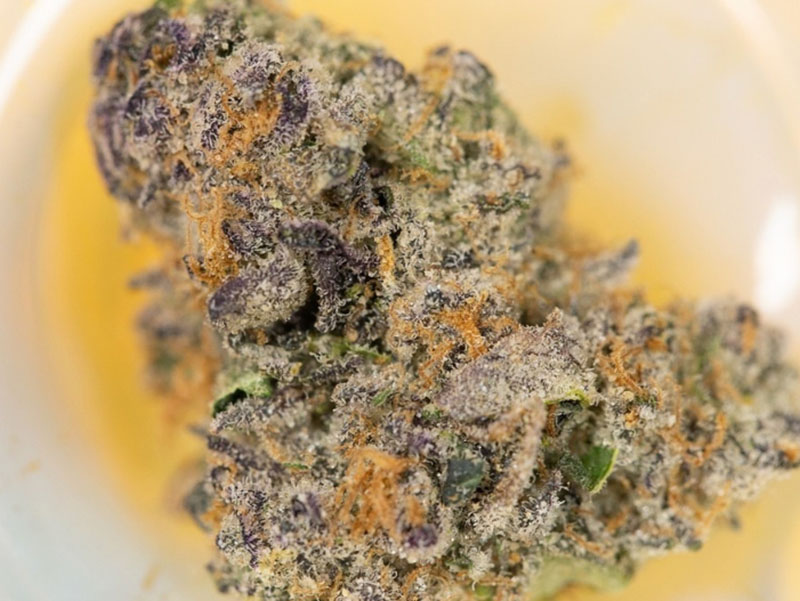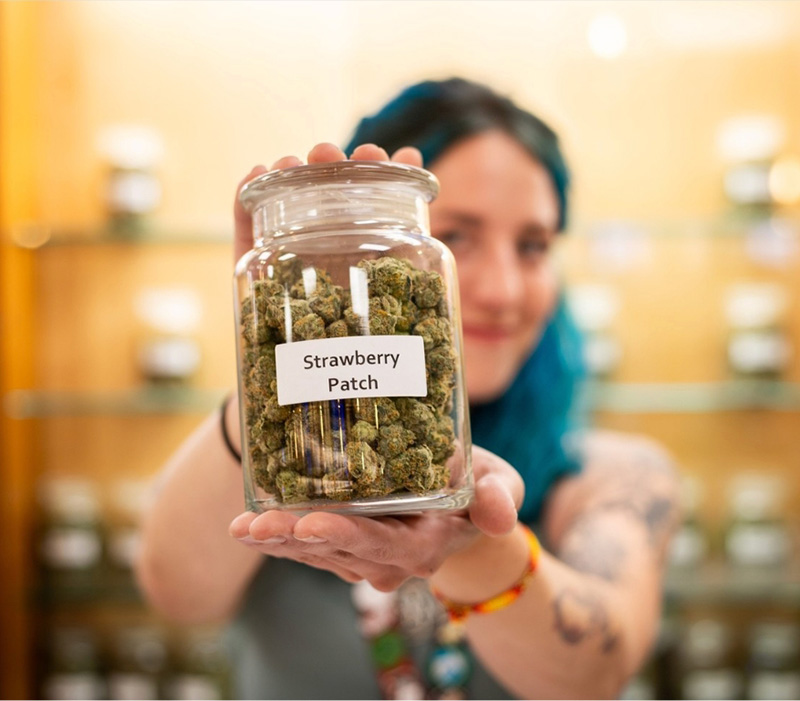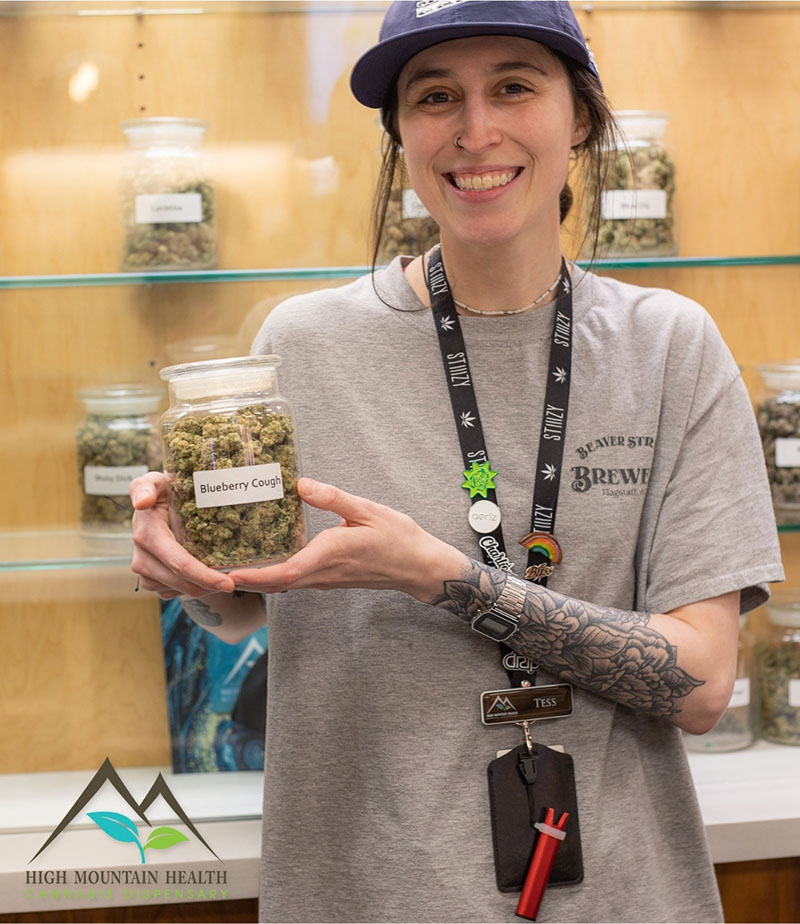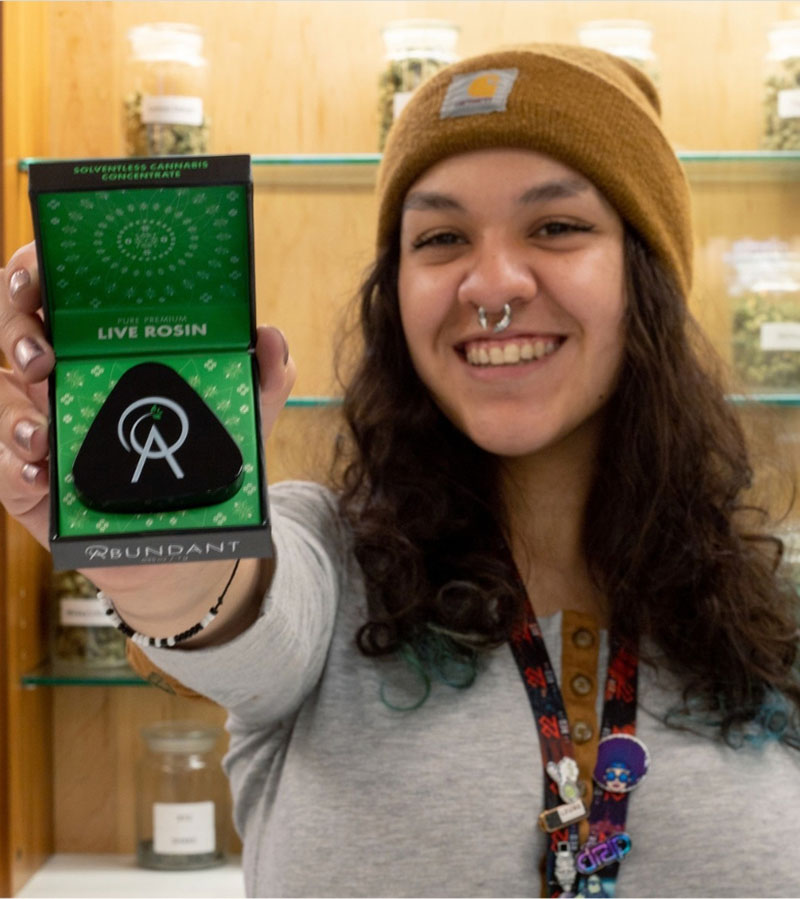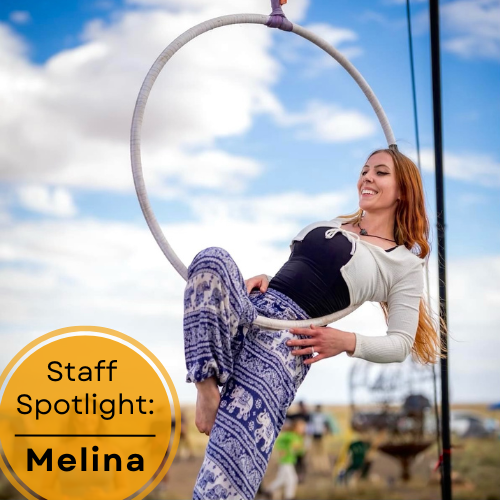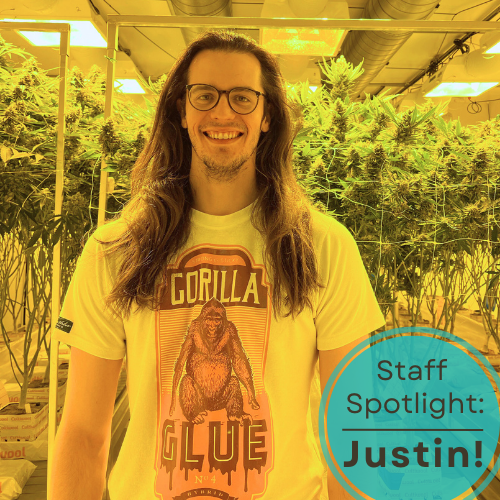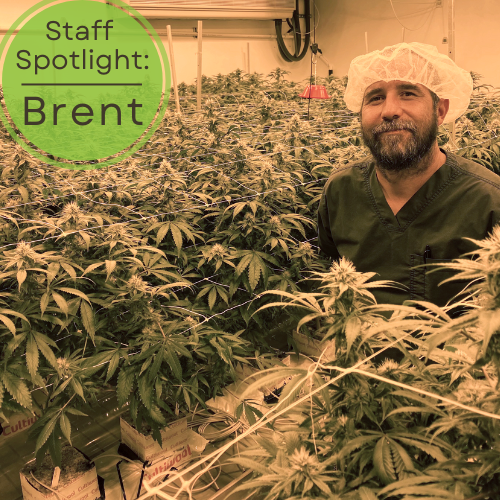Cannabis Incarceration at Home and Abroad
By Zachariah Finning
Cannabis, also known on the streets as Reefer, Grass, Herb, Mary Jane, Weed, and God’s Gift, has seen its decriminalization, even legalization, all over the U.S. as well as other parts of our world. The stigma around using Cannabis medically or recreationally is starting to fade due to the mindset and actions of generations who are not swayed by the “reefer madness” propaganda of the olden days. However, regardless of stigma or public opinion, people all over this country and the world are still incriminated and incarcerated due to possessing and smoking the plant or its many preparations. Only recently has the expungement of an individual's criminal records relating to cannabis charges begun. In this blog we will discuss the original illegalization of cannabis in the US; we will delve into cannabis incarceration rates at home, our neighbor to the north, and in a distant land. We will also touch upon the severity of punishments in those different locations around the globe. Lastly, we will look into individuals and organizations who are trying to make sure the common citizen does not get arrested or incarcerated for using their medication or preferred vice.
Cannabis in American culture can trace its way straight down to the roots. Hemp and cannabis were once acceptable forms of tax payment in the colonies. In the late 19th century Americans and Europeans alike could buy cannabis extracts in pharmaceutical locations and even doctor's offices. At the time it was used for a wide variety of maladies including stomach aches, migraines, inflammation, insomnia, and a laundry list of other conditions (S1). However, by the turn of the century, most Americans' opinions regarding the plant started to shift toward the negative. This was in part due to the large Mexican immigration into the U.S. during and after the 1910 Mexican Revolution (S1). The decade-spanning from 1910 to 1920 saw over 890,000 Mexicans legally immigrated into the United States (S2). Eric Schlosser, a historical writer, notes that "Police officers in Texas claimed that [smoking] 'marijuana' incited violent crimes, [and] aroused a 'lust for blood'." These baseless claims along with frequent rumors spreading throughout the country that Mexicans were "distributing this 'killer weed' to American schoolchildren" would eventually lead to the outlaw of cannabis (S1). Prior to the mass immigration "...smoking the plant recreationally was not as common as other forms of consumption" for the majority of Americans (S2). In fact, before 1910 the word "marijuana" didn't exist in American culture, Cannabis was the more commonly used word (S2). It is believed that the term "marihuana" was created and used more broadly as stigmas around smoking the plant increased. Between 1916 and 1931, 29 states had outlawed the use of Cannabis (S1). In 1936 the well-known Anti-Cannabis film Reefer Madness was released. The movie helped to spread more negative social stigmas surrounding smoking the plant and recreation use - done so by sending the message to adults that drug dealers would "invite their teenagers to jazz parties and get them hooked on 'reefer'" (S1). The following year the Marihuana Tax Act of 1937 fundamentally banned the use of cannabis and its cultivation across the U.S. This was in spite of objections from the American Medical Association related to the medical use of the plant (S1).
Since its criminalization, millions of individuals at home and around the world have been arrested, fined, jailed, and/or imprisoned for simply possessing or smoking the plant. Looking inward, U.S. statistics on cannabis are not very appealing. After its original illegalization, the federal government and individual states continued to raise the severity of punishments linked to cannabis-related charges. This continued until the late 1960s when such laws and punishments started to affect upper-middle-class white college students who frequently indulged (S1). The New York Times reported that "during the mid-70s virtually all states softened penalties for 'marijuana' possession" (S1). Regardless of softened penalties, a 2010 U.S. statistic showed that 52% of all drug arrests that year were for cannabis. The same set of statistics shows that in 2010 police made a "pot bust" every 37 seconds (S4). In that same year, the U.S. arrested 250 people per 100,000 for cannabis-related offenses (S5). That seems a bit grandiose during the midst of what was then the beginning of the national opioid and heroin crisis. Another U.S. statistical figure shows that in 2018 alone 663,367 citizens were arrested for 'marijuana' law violations, most being for citizens found in possession of small amounts of the plant (S3). That is over half a million of its own population in just one year! A recent report by the American Civil Liberties Union (ACLU) concluded that between 2010 and 2018 more than 6 million arrests occurred in the U.S. for 'marijuana' related charges. The same report titled, "A Tale of Two Countries" goes on to prove in deep detail the racial disparities in cannabis arrests within the United States. It reflects that African American or other "Black" individuals are 3.64 times more likely to be arrested for cannabis than Caucasian Americans (S5). It also brings to light that despite massive sways of decriminalization and legalization among many states in the last decade, 'marijuana' related - surely less than in 2010, but only a drop of 9% (S5). Overall arrest rate didn't change much within the decade. The report by ACLU has 2018 statistics showing 204 persons per 100,000 being arrested for cannabis (S5). It has long been noted that the U.S. has the highest incarceration rate in the world and it seems when it comes to cannabis the police have no intention of turning down the heat any time soon. With a huge push this past election for decriminalization and legalization in some states that were often thought never to change their stance, maybe we will start to see a decline in the cannabis-related arrests within our country.
When it comes to the rest of the world concerning cannabis laws and convictions one wonders...do they get as harsh a treatment as Americans and our minorities? In some places, yes and in others not so much. First off, if we look to our closest neighbor Canada, we can see the world does differ in its opinion of the plant as well as in prosecution. An article published in 2017 based on 2016 Canadian data shows that 53% of all police-reported drug offenses were in fact cannabis-related. It seems to be almost equal to the U.S. at first glance. However, their cannabis-related incidents per 100,000 population had decreased by 15% from 2016 to 2017 (S6). That was their seventh continuous year of decline relating to cannabis offenses and incarceration. All in all, the 2017 report concluded that only 95,984 total individuals were arrested for cannabis-related charges in 2016 (S6). That is drastically lower than the U.S. yearly average of 750,000 people between 2010 and 2018 (S3). On October 17, 2018, Canada legalized cannabis for adult use. However, just because it is legal does not mean that there are no punishments for those operating outside the legal parameters. Possession over the limit can land an individual anywhere from a small fine up to 5 years in jail. Whereas illegal distribution, exportation, or sale can rack one up to 14 years in jail (S6). In 2005 Canada arrested 200 people per 100,000 population for cannabis-related offenses. By the time legalization rolled around in October of 2018 that number had dropped to around 100 people per 100,000 population (S7). That is a drastic drop of 50 percent! Canadian cannabis-related offenses in all dropped by 29% after its legalization (S7). Despite the large population difference between the U.S. and Canada, it is evident in numbers that in the last decade that Canada's incarcerations for cannabis are on a steady decline and seem to only be getting lower. Turing our head to another part of the world with a more draconian view on cannabis, we look towards Singapore. Singapore does have a vastly smaller population than either the U.S. or Canada with just 5.6 million as of 2018 records. However, their laws and incarcerations are what brings them to our attention. Singapore's drug laws are so strict that only 0.005% of the population uses cannabis, compared to the 12% average in the U.S. (S8). Possession in the most minimal amount can result in up to a 10-year prison sentence and the equivalent to $20,000 in fines. If one is caught with more than 15 grams on their person it is automatically classified as trafficking and one can go to prison for life. More than 500 grams is death (S8). Cannabis arrest rates for the country could not be located as well as any accurate information on cannabis convictions alone. None the less a 2019 statistic for all convicted drug offenses in the country shows they had 5,420 convictions (S9). That is only 0.09 percent of their whole population! It seems that the stricter the laws are within a country, not only do they tend to curb individual use, they also succeed in hindering the distribution there as well. While the waves of legalization and decriminalization of cannabis in the western hemisphere are a good sign, they have yet to show the long-lasting effects on its policing.
Many parts of the world have varying stances on cannabis and drug use in general. These stances affect the arrest rates, convictions, and laws surrounding the prosecution of cannabis offenses. It is no mystery that some parts of the world blatantly flaunt legality and use, such as Amsterdam in the Netherlands. While others, such as The United Arab Emirates, force citizens to hide and or deny themselves the right to a vice or medication in fear of death. In today's ever-changing world there are organizations and individuals who are leading the effort to reduce the harm that laws inflict on individuals charged for cannabis. One such organization is the Last Prisoner Project (LPP). This is an organization whose mission is aimed at ending injustice for countless African Americans and other American minorities currently in prison for cannabis charges in the United States. They do so by advocacy, awareness campaigns, and direct intervention in certain cases (S10). LPP has implemented direct action and services in Hawaii, Colorado, and California. For example, in Hawaii, they “hosted the first-ever expungement clinic” in the state partnering with ACLU of HI and the Hawaii Innocence Project (S10). They have also engaged and pushed for Cannabis Policy Reform in states stretching from Washington to Texas down into Florida and back up to Virginia, as well as a swath of the east coast (S10). Jumping over the Atlantic to our European neighbors our spotlight falls on the newly formed ECAN, short for the European Cannabis Advocacy Network (ECAN). ECAN states that in Europe there is a gap in networks focused on ideas and collaborations to push forward with cannabis reform. The newly formed advocacy network will patch the gaps between those local European cannabis reform organizations by bringing them together to work collaboratively (S10). By creating a “system of platforms to share information” and proposals with one another, this new group hopes to grow their member and contribution base to make truly impactful reforms in European Cannabis Law (S10). Advocacy organizations can have a profound effect on reform and change in the world, but if it wasn’t for certain individuals some things would never change. Lori Ajax is not a household name, but she might as well be in California. In 2016 Ajax was appointed as California’s first head of the Bureau of Medicinal Marijuana Regulation where her achievements were historical. She was directly responsible for ensuring that there was an operational market for the licensing, regulation, and taxation of the state’s medicinal cannabis (S12). She also oversaw the state's transition from medicinal-use only to recreational showing the world that it can be done correctly and swiftly. Another individual more well-known for their achievements would be Dana Beal. An esteemed political and social activist of past and current times, he has not feared time in prison defending the right to use cannabis. Referred to as “The Lenin of the Marijuana Movement” Beal has been arrested multiples times in connection to cannabis. 2009 and 2011 saw Dana arrested for possessing large quantities of the plant in Nebraska and Wisconsin (S12). Wisconsin sentenced him to 30-months in prison while Nebraska pinned him with 4-6 years. His most recent arrest, however, took place during December of 2017 in the state of California. He has explained that he planned to use cannabis to help AIDS patients in the state (S12). His greatest achievement, feasibly, would be the Global Million Marijuana March. Which first took place in 1999. The event has since continued to spread across the globe and now happens on the first Saturday of May each year in hundreds of cities (S12). The march brings out activists, supporters, and common people of their cities who support cannabis reform and legalization. Without certain individuals and organizations on the front lines of cannabis reform, we would still be in the “Reefer Madness” era of the ’30s.
Cannabis’ status as a Schedule 1 drug remains in effect within the U.S. at the federal level and severe-penalty policies persist in places around the world. However, the massive movement toward decriminalization and legalization in many states this past election and decade proves that the people of our country are letting go of the myths and stigmas that have surrounded cannabis in this country, and around the world, for far too long. Other places around the globe are slowly following suit and thinking of ways to continue the reformation of laws that push harsh sentences and convictions on individuals for personal use or possession. The amount of people incarcerated around the world for a plant that has now become legal in some places is a travesty to human rights. Recently a Key United Nations panel approved a World Health Organization recommendation to remove cannabis from the most restrictive global scheduling (S13). Although this does not make any immediate changes to any country’s cannabis status, it does show that on the world stage opinion of cannabis is changing. Hopefully, in a time frame as fast as the recreational markets are appearing, we will start to see expungements and massive reform in the laws and punishments for possessing a plant that is of medicinal and spiritual value to millions of people around the globe. On November 30, 2020, Arizona enacted Prop 207 legalizing recreational adult use of cannabis, in addition to Arizona’s Medical Marijuana Program. For more information visit the Arizona Department of Health Services.
Sources:
- https://www.history.com/news/why-the-u-s-made-marijuana-illegal
- https://www.leafly.com/news/cannabis-101/where-did-the-word-marijuana-come-from-anyway-01fb
- https://drugpolicy.org/issues/drug-war-statistics
- https://www.aclu.org/gallery/marijuana-arrests-numbers
- https://www.aclu.org/report/tale-two-countries-racially-targeted-arrests-era-marijuana-reform
- https://www.justice.gc.ca/eng/cj-jp/cannabis/
- https://www150.statcan.gc.ca/n1/pub/11-627-m/11-627-m2019055-eng.htm
- https://wayofleaf.com/blog/strictest-cannabis-laws-in-the-world
- https://www.statista.com/statistics/1132849/singapore-convicted-penal-population-for-drug-offences/
- https://www.lastprisonerproject.org/
- https://volteface.me/european-cannabis-advocacy-network-ecan/
- https://wayofleaf.com/blog/most-influential-people-in-marijuana-history
- https://www.marijuanamoment.net/united-nations-removes-marijuana-from-most-strict-global-drug-category-with-u-s-support/

